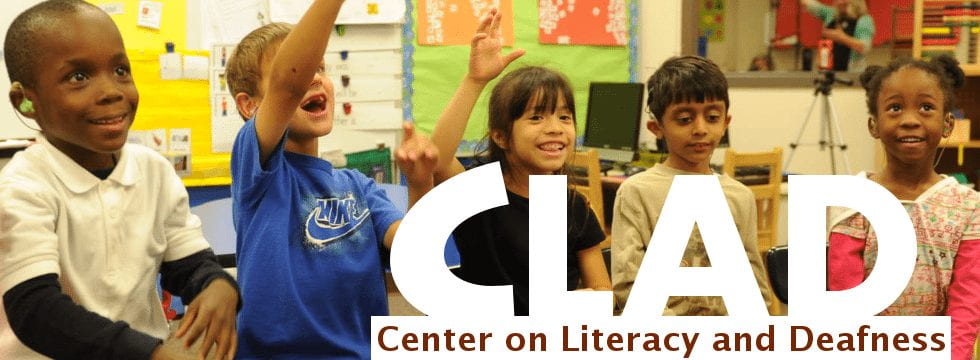Center on Literacy and Deafness developed three interventions that are available to teachers. Below is a brief description of a curriculum that improves early literacy skills. Please follow the links to learn more about the program.
Foundations for Literacy is an early literacy program—focused on the basic preliteracy skills that are developmentally appropriate for preschool and kindergarten children. Targeted learning objectives include letter-sound or letter-name correspondence, spoken or visual phonological awareness, vocabulary, narrative skills and reading of decodable words and short connected text. Weekly lessons are organized on learning the sounds of English and then associating those sounds with letters. The children also are taught to decode letters in printed words into spoken phonemes and to blend letters into spoken and/or signed words. For children who do not use spoken English, we provide guidance on how to adapt these lessons using fingerspelling. Teachers use short stories, language experiences, and storybook reading to teach vocabulary and narratives. Teachers have successfully implemented Foundations in both Listening and Spoken Language and in Total Communication programs (those that use both speech and sign to communicate with their students). We also have a new edition that guides teachers to substitute fingerspelling activities for sound-based ones for children who are not acquiring spoken language. This adaptation has been successfully implemented in bilingual ASL-English programs. Over 1000 teachers in every state in the USA have been trained in implementing Foundations for Literacy. Visit our website to learn more about the program and how to bring it to your classroom.
